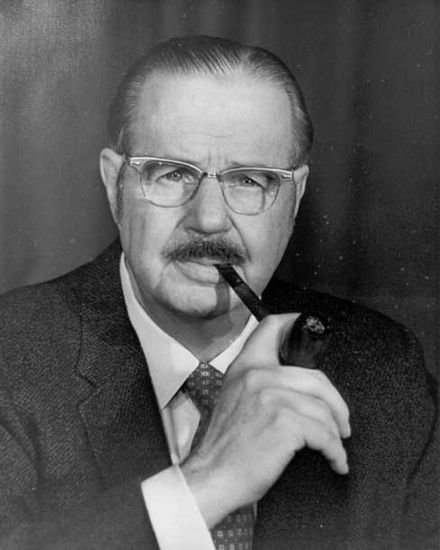Segment 86: "Without fear or..."
Edvard Munch, “The Scream,” 1893. National Museum, Oslo
The “Horribly Wrong” team has defined a cliché as a phrase that was really good the first time someone said it, and then everyone liked it, until it got overused. Through the vast archives of newspapers.com, we searched the world’s newspaper contents, some dating back more than two centuries, and found one particular phrase that it seemed people, especially politicians and lawyers, really, really, really liked. Most sources date its origin to Adolph Ochs, who promised it to readers when he acquired The New York Times in 1896. But we found it as far back as 1779! Readers?
Grassley
April 2024: U.S. Sen. Chuck Grassley, R-Iowa, in keynote address to Heritage Foundation Symposium on “Weaponization of U.S. Government:” “No matter which party’s in the White House, you must pursue the facts and the evidence without fear or favor.”
December 2023: Colorado Supreme Court in banning former President Donald Trump from 2024 ballot: “We are likewise mindful of our solemn duty to apply the law, without fear or favor..”
March 2023: Fox Corp. CEO Lachlan Murdoch: “…a news organization has an obligation and it is an obligation to report the news fulsomely, wholesomely and without fear or favor. And that is what Fox News has always done and will always do.”
January 2023: Robert Hur, special prosecutor in the probe of classified documents found in office and home of President Joe Biden: “I intend to follow the facts swiftly and thoroughly, without fear or favor.”
September 2009: Retiring Manhattan District Attorney Robert Morgenthal as Cyrus Vance, Jr., won a Democratic primary to succeed him: “He’ll support the best staff in the country investigating and prosecuting cases without fear or favor.”
Murdoch
Hur
Morgenthal
June 2000: Western Montana judicial candidate Vincent J. Kozakiewicz: “I believe a district judge should treat all persons equally and render decisions without fear or favor.”
October 1992: Clifford W. Taylor, judge and candidate for Michigan Court of Appeals: “I serve as a judge in an unbiased fashion without fear or favor of anyone.”
March 1988: Resigning Assistant U.S. Attorney General William Weld: “I am grateful to have been charged with the responsibility of seeing that justice be done without fear or favor.”
Kozakiewicz (Helena, Montana, Independent-Record)
Taylor (Michigan Supreme Court Historical Society)
Weld
August 1980: Georgia federal judge Wilbur Owens: “When I took the oath of office, I vowed to try cases without fear or favor.”
May 1973: U.S. Senate GOP Leader Hugh Scott on the Watergate investigation: “…(it) must proceed without fear or favor.”
December 1961: Tampa Mayor Julian Lane: “It is our obligation to provide enforcement of the law without fear or favor.”
Owens
Scott
September 1948: Judge Marion S. Boyd, on the retirement of Memphis-area U.S. Attorney William McClanahan: “Bill conducted the office on a high plane, prosecuting cases without fear or favor.”
December 1938: Lancaster, Pa., police commissioner Albert Carlson: Parking violations to be prosecuted “without fear or favor.”
December 1927: New York Supreme Court Justice Townsend Scudder, on appointing a special counsel in a sewer project fraud scandal: “When Gov. Smith requested me to undertake this investigation, he told me that he wanted the truth, and that it was my task to find it, without fear or favor.”
Boyd
Carlson (Lancaster, Pa., New Era)
Scudder
November 1910: New York gubernatorial candidate Henry L. Stimson: “If elected, I shall administer the office with an earnest and conscientious aim to be governor of the entire people, without fear or favor…”
May 1901: E.R. Bryson, candidate for police judge in Oregon: “If elected, I pledge myself to a faithful discharge of the duties of the office, without fear or favor.”
April 1882: Campaign ad for Minneapolis mayoral candidate Charles M. Loring, on to a ban on Sunday liquor: “If elected, I shall use every legal power of the executive branch of the city government to enforce that ordinance…fair and impartially, without fear or favor.”
November 1860: Editorial in Vicksburg, Miss., Daily Whig: “Have we a government? Have we laws? Have we a president? Is he sworn to administer those laws, without fear, favor or affection? These are questions of grave importance in this crisis.”
August 1842: President John Tyler: “I shall feel myself bound to execute, without fear or favor, the law, as it has been written by our predecessors.”
Stimson
Loring (Minnesota Historical Society)
Tyler
June 1804: Trial coverage in Aurora, Pa., General Advertiser: “They may perform the duties enjoined by their oaths, without fear or favor.”
December 1779: Vermont Journal, describing the state’s freedman’s oath: “You shall judge with most conduce to the best good of the same, as established by constitution, without fear or favor of any man.”
Watch this on video: https://youtu.be/8CUTr6hfyBI?si=CVdMihkXUsi7STyf
Next time: A train walking along the tracks?
Readers: "Something Went Horribly Wrong" features samples of bad writing we see nearly every day. You can participate! Be our duly deputized “grammar police.” Your motto: “To protect and correct.” Send in your photos of store signs, street signs, menus, TV news graphics, newspaper headlines, tweets, and so on. It doesn’t have to be a grammatical error. It can be just what we call “cowardly writing.” Include your name and home town so we can credit you properly. You're free to add a comment, although we reserve the right to edit or omit. Now get out there! Send to Eliot@eliotkleinberg.com
Haven’t signed up for our newsletter yet? Do it now! And tell your friends!
NOTE: Eliot and Lou Ann are available for speaking engagements, and can travel. Reach us through the comments section. Just think of all of your employees getting back to work on a Monday, their heads filled with all the ways we’ve shown them to be better communicators!


















